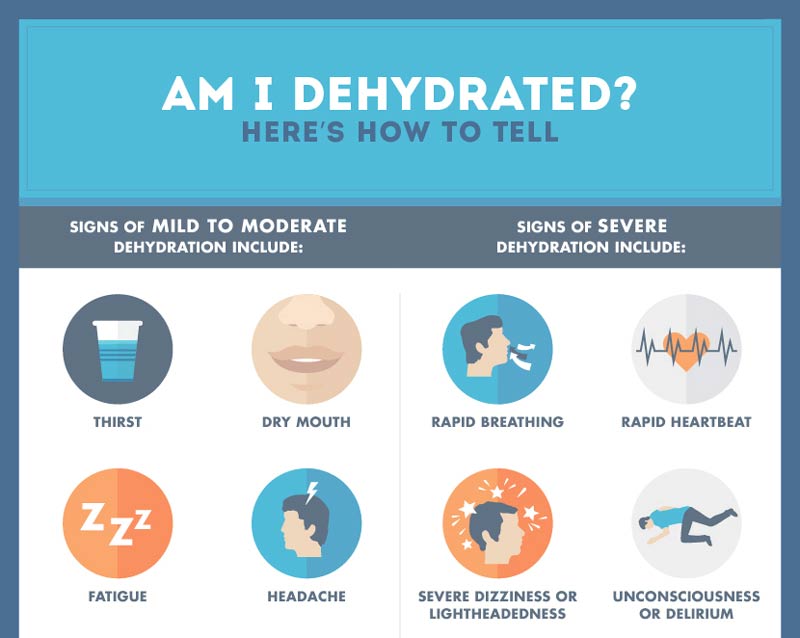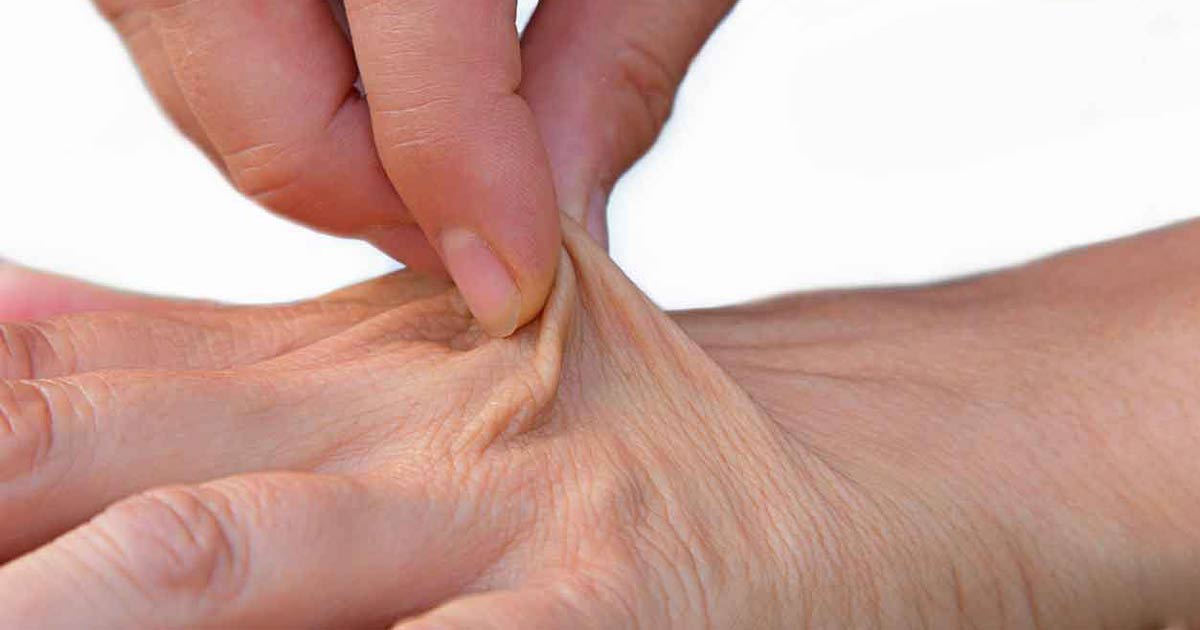Everyone knows that water is essential to life, but many don’t understand how important hydration is as we age. Like infants and children, the elderly are more severely affected by dehydration and can even suffer life-threatening consequences. Among the most easily preventable reasons for hospitalization in the elderly population, dehydration should never be underestimated as a health threat. As summer approaches, it’s important to know the facts about dehydration in seniors, how to recognize symptoms, and steps you can take to ensure your loved one gets all the water they need to stay healthy.
Understanding dehydration
Aging has all kinds of repercussions from memory loss to vision impairment to weaker bones. According to the Mayo Clinic, as we age, our ability to feel thirsty also becomes less acute as does our capacity to “conserve” water in our bodies, so it becomes important to drink more fluids. In fact, it may be surprising how just a small decrease in bodily fluids can cause symptoms of dehydration. One study published by the National Institutes of Health showed, “In some individuals, the loss of as little as 2-3% of body fluid can cause physical and cognitive impairment [4].”
As if that weren’t enough, many drugs and chronic medical conditions can also contribute to dehydration, including diabetes, kidney disease and medications that increase urination (diuretics). But even a bout of the flu, a cold or other illness — especially if there is a fever, diarrhea and/or vomiting — can bring about dehydration if a senior loses their appetite or isn’t able to drink or keep down enough water or other fluids. For those who still enjoy gardening, lawn care and other outdoor activities in the heat of summer, drinking to cool off and replace fluids lost to sweating is essential. Seniors with dementia or other cognitive conditions often do not get enough water simply because they forget to drink.
Signs of dehydration
It’s easy to miss the early signs of dehydration but keeping track of your loved one’s fluid intake may be necessary to ensure they are getting enough. Start by monitoring the following possible symptoms.
- Headache
- Dizziness/lightheadedness
- Fatigue
- Dry mouth or eyes
- Low urinary output
- Dark urine
- Muscle cramps
- Dry skin
Severe dehydration shares the above symptoms but also may include:
- Inability to urinate
- Rapid heartbeat
- Rapid breathing
- Sunken eyes
- Sleepiness
- Confusion/irritability/delirium
- Seizures
- Fainting
- Very dry skin
- Inability to sweat
- Low blood pressure

It is also important to note that chronic dehydration can interfere with kidney function, cause urinary tract infections and kidney stones, increase the likeliness of falls, and bring about complications in diabetics. If your loved one has memory problems or dementia, it may be difficult to tell the difference between their ordinary confusion and that brought about by dehydration. In all cases, when dehydration is suspected, consult a healthcare professional immediately.
The costs of elderly dehydration
According to the NIH study, “Dehydration has been identified as an independent ‘ambulatory care-sensitive condition’ or ACSC by the Agency for Healthcare Research and Quality (AHRQ) in the United States [17, 48]. In a large healthcare utilization study of more than 79,000 elderly patients admitted with a principal diagnosis of dehydration, about 50% had urinary tract infections and approximately the same percentage were listed as having respiratory and/or cardiac conditions [17]. A report from 2015 concluded that $1.36 billion was spent to treat elderly patients hospitalized for dehydration [16].”
More importantly, the impact of hospitalization on your loved one can be detrimental. Multiple studies have documented how hospital stays can actually cause physical, mental/cognitive and emotional changes that can affect elderly patients long after they are discharged.
Tips for increasing fluid intake
The most effective way to curb dehydration is to make drinking more fluids routine, easy and fun.
- Ensure your loved one can access water without difficulty. Some disabilities may make it seem like getting a drink of water is more trouble than it’s worth, so access is key. Keeping a full glass of water available at all times is the best solution.
- While water is arguably the best fluid to offer, beverages like juices, milk (dairy or not), fruit smoothies, and low or zero-caffeine coffee and tea are nice for a change.
- Provide cups with lids and straws that make it easier for the elderly to drink and help avoid spills.
- Make having a beverage an event. Sitting with your loved one over a smoothie or cup of tea can provide a great opportunity for catching up and help them associate drinking with pleasure.
Don’t forget too that many foods can also help stave off dehydration … watermelon, for example, is 91 percent water! Also on the “best of” list according to the Cleveland Clinic are: cucumbers (95 percent), celery (95 percent), zucchini (95 percent), iceberg lettuce (91 percent), cauliflower (92 percent), and strawberries (91 percent). Each of these options also offer plenty of vitamins and other health benefits and make great snacks anytime.
In 1735, Benjamin Franklin wrote in a newspaper, “An ounce of prevention is worth a pound of cure,” in reference to Philadelphia’s need to improve fire-fighting by first taking care to avoid starting fires in the first place. Almost 300 years later, the same logic applies perfectly to helping our loved ones avoid dehydration. Simply drinking enough water every day is all it takes to keep them happy, healthy and out of the hospital.
Get the Help You Need
Do you want help caring for your health and ensuring a long life ahead? Then come to Ganton’s. With a full staff of caring, knowledgeable medical professionals, a wide variety of activities, menus and offerings, and plenty of opportunities to socialize and meet like-minded friends, Ganton’s has the resources you need to live many happy, healthy decades more. For more information about Countryside, please call Margaret Nagel at (517) 206-5000 or download our brochure to learn about our care levels, cost, and amenities.


